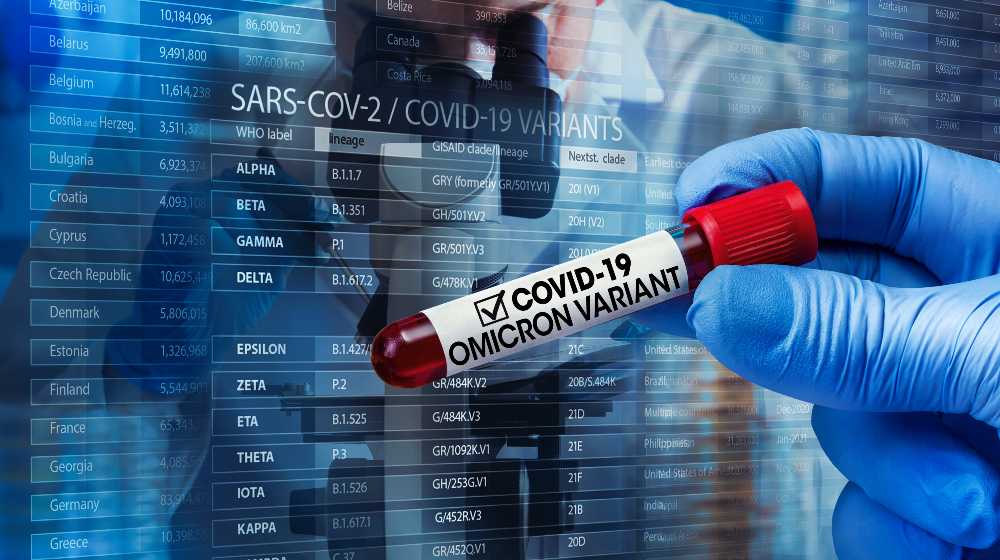COVID-19
WHO Declares COVID-19 Omicron Strain A ‘Variant Of Concern’

The World Health Organization labeled COVID-19’s new heavily mutated Omicron strain a “variant of concern. The agency said that its large number of mutations might pose some problems down the line.
RELATED: US Hospitals Struggle As Delta Surges But Stimulus Runs Out
Increased Risk of Infections

Last Friday, the WHO released a statement regarding the Omicron strain. “This variant has a large number of mutations, some of which are concerning.
Preliminary evidence suggests an increased risk of reinfection with this variant, as compared to other VOCs,” it said.
The strain, first known as B.1.1.529 but now as Omicron, first appeared in South Africa. The number of Omicron strain cases appears to increase across the entire country.
Other countries also reported the presence of the variant. This includes the UK, Israel, Belgium, the Netherlands, and Hong Kong.
Unique Constellation of Mutations
In a South Africa Department of Health media briefing, scientist Tulio de Oliveira said that Omicron contains a “unique constellation” of more than 30 mutations to the spike protein.
This is the component of the virus that binds to cells. The number of proteins is more than that of the delta strain.
These mutations are mostly linked to increased antibody resistance. This can affect the way the virus reacts to vaccines, treatments, and transmissibility.
In total, the strain contains 50 mutations. The receptor-binding domain has 10 mutations. This is eight more than the Delta strain mutations.
The latter became the more dominant strain worldwide due to its ability to spread rapidly. For the Omicron variant, it’s possible that this originated from a single patient who couldn’t clear the virus.
Know More About The Omicron Strain
Maria Van Kerkhove, the WHO’s technical lead on Covid-19, said the race is on to learn more.
Scientists still have little knowledge about how the strain works. The world body will need a few weeks to gain a full understanding of how the variant will react to existing vaccines.
Meanwhile. Some governments acted to mitigate the spread of the virus. The United Kingdom immediately moved to ban flights from South Africa, Lesotho, Botswana, Namibia, Eswatini, and Zimbabwe earlier Sunday.
Israel also barred travel to several southern African nations over the Omicron strain. The country reported one case from a traveler returning from Malawi. Belgium also became the first EU country to report a case last Friday.
Is Omicron More Dangerous?
Still, the WHO has yet to determine how Omicron compares to other COVID-19 variants. They have yet to study if the variant is easier to transmit compared to Delta or other variants. The agency also wants to know it causes a more severe form of the disease.
“Preliminary data suggests that there are increasing rates of hospitalization in South Africa, but this may be due to increasing overall numbers of people becoming infected, rather than a result of specific infection with Omicron,” the organization said.
“There is currently no information to suggest that symptoms associated with Omicron are different from those from other variants,” the WHO added.
“Initial reported infections were among university studies —younger individuals who tend to have the more mild disease — but understanding the level of severity of the Omicron variant will take days to several weeks.”
Watch the CNBC Television video reporting that the new COVID-19 strain named Omicron is a ‘variant of concern':
What do you think of COVID’s new Omicron strain? Do you think the US should impose restrictions to prevent the spread to its borders?
Let us know what you think. Share your comments in the comments section below.















